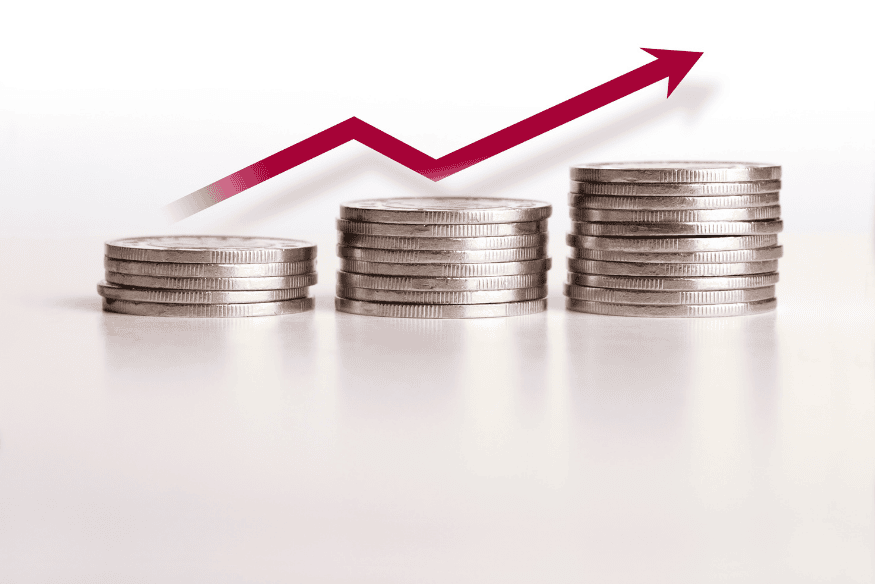Inflation—it’s a term you’ve likely heard in economic discussions, but have you considered how it directly affects your finances? Understanding inflation is crucial to protecting your financial health and planning for the future. This guide breaks down the basics of inflation, its impact on your money, and actionable strategies to help you stay ahead.
What is Inflation and Why Does it Happen?

Inflation refers to the rise in the prices of goods and services over time, reducing the purchasing power of your money. Simply put, what you could buy with $1 last year might cost $1.05 this year. While moderate inflation is a normal part of a healthy economy, excessive inflation (or deflation) can destabilize markets and personal finances.
Causes of Inflation
- Demand-Pull Inflation: When demand for goods and services exceeds supply, prices rise.
- Cost-Push Inflation: Rising production costs, such as wages and materials, lead to higher prices.
- Built-In Inflation: Expectations of future inflation drive higher wages and prices.
How Inflation Impacts Your Finances
1. Reduced Purchasing Power
As prices rise, your money buys less. This impacts daily expenses like groceries, fuel, and utilities, leaving less room in your budget for savings or discretionary spending.
2. Savings and Investments
- Savings: Inflation erodes the value of cash held in savings accounts. For example, with a 3% inflation rate, $10,000 in a non-interest-bearing account loses $300 in real terms annually.
- Investments: Fixed-income investments, like bonds, can underperform during inflation as their returns may not keep pace with rising prices.
3. Borrowing and Debt
Inflation can be beneficial for borrowers as the real value of debt decreases over time, provided interest rates remain manageable. However, rising interest rates—often used to combat inflation—can make new borrowing more expensive.
4. Wages and Employment
While inflation can lead to higher wages, these increases often lag behind rising costs, reducing real income.
How to Stay Ahead of Inflation
1. Invest Wisely
Investing is one of the best ways to outpace inflation. Consider the following options:
- Stocks: Historically, equities have outperformed inflation over the long term.
- Real Estate: Property values and rental income typically rise with inflation.
- Commodities: Investments in commodities like gold and oil can hedge against inflation.
- Treasury Inflation-Protected Securities (TIPS): These bonds are specifically designed to adjust with inflation.
2. Prioritize High-Yield Savings Accounts
Shift your savings to high-yield accounts or certificates of deposit (CDs) that offer better returns. Even small percentage increases can offset inflation’s impact.
3. Reduce Fixed-Rate Debt
Take advantage of inflation’s debt-reducing effect by locking in low fixed interest rates for loans and mortgages. Avoid variable-rate loans, which can become more expensive as rates rise.
4. Budget and Monitor Expenses
Regularly update your budget to reflect changing prices. Focus on needs over wants, and look for ways to cut costs without sacrificing quality of life.
5. Diversify Your Income Streams
Building multiple income sources—such as freelance work, investments, or rental properties—can provide a financial buffer during inflationary periods.
6. Consider Inflation-Resistant Assets
Certain assets, such as infrastructure investments or real estate investment trusts (REITs), often maintain or grow in value during inflationary times. Adding these to your portfolio can offer additional protection.
Inflation and Retirement Planning

Planning for retirement requires special attention to inflation. Without proactive measures, inflation can significantly reduce the purchasing power of your retirement savings.
Key Strategies for Retirees
- Delay Social Security: Benefits increase for each year you delay claiming past your full retirement age.
- Inflation-Adjusted Annuities: These products offer payouts that rise with inflation.
- Diversified Investments: Maintain a balanced portfolio that includes inflation-resistant assets.
- Healthcare Costs: Plan for higher healthcare expenses, which often outpace general inflation rates.
Protecting Fixed Incomes
Retirees relying on fixed incomes may find their purchasing power eroded over time. Consider increasing exposure to dividend-paying stocks or high-yield bonds to supplement income.
How Inflation Affects Everyday Life
1. Housing
- Homeowners: Benefit from rising property values and fixed mortgage rates.
- Renters: Face increasing rents as landlords adjust for inflation.
2. Groceries and Essentials
Rising food and utility costs can strain budgets. Buying in bulk, using coupons, and comparing prices can help mitigate the impact.
3. Travel and Leisure
Inflation can drive up the costs of airfare, hotels, and dining out. Planning trips during off-peak seasons and leveraging loyalty programs can stretch your dollars further.
4. Transportation Costs
As fuel prices increase, transportation costs—including car maintenance and public transit fees—can become a larger part of your budget. Opting for fuel-efficient vehicles or carpooling can help cut costs.
5. Education Costs
Tuition fees and school supplies often rise faster than general inflation. Parents saving for education should consider 529 plans or other tax-advantaged accounts to keep up with escalating costs.
The Role of the Federal Reserve
The Federal Reserve plays a critical role in managing inflation through monetary policy. By adjusting interest rates and controlling the money supply, the Fed aims to maintain inflation at a target rate of around 2% annually.
What Can You Expect?
During periods of high inflation, the Fed may raise interest rates, leading to higher borrowing costs but potentially stabilizing prices in the long run.
Historical Context
Understanding historical periods of inflation, such as the 1970s in the U.S., can provide insights into how markets and consumers react. Learning from past trends can help in developing strategies for the future.
Conclusion

Inflation is an unavoidable economic reality, but with informed strategies, you can protect and grow your wealth. By investing wisely, managing expenses, and planning for the future, you can turn inflation from a financial threat into an opportunity for growth.
Take action today: Review your financial plan, explore inflation-resistant investments, and stay informed about economic trends to ensure your financial stability in any economic climate.










